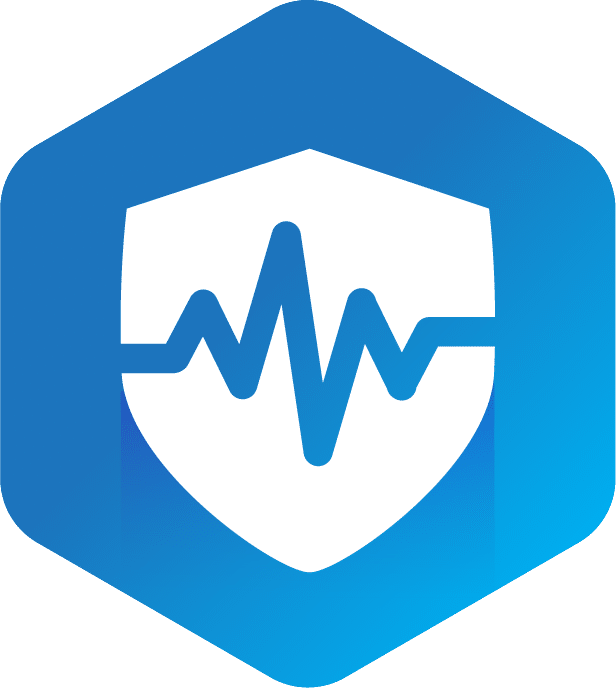Are you a Canadian wondering how HIPAA laws apply to you? Well, the truth is, they don’t. In Canada, we have our own legislation called the Personal Information Protection and Electronic Documents Act (PIPEDA) that governs the privacy and protection of personal health information.
PIPEDA is actually broader than HIPAA as it covers data collected in various industries, not just healthcare. It ensures that organizations are accountable for protecting all data collected and guarantees individuals the right to privacy over their information.
Each province may also have its own specific healthcare privacy legislation. So while both HIPAA and PIPEDA share similar principles of protecting health information, the laws and regulations governing healthcare privacy differ between the United States and Canada.
Stay tuned to learn more about PIPEDA’s key principles and how they apply to Canadians like yourself!
PIPEDA, Canada’s version of HIPAA, broadens the scope of protection by encompassing industries beyond healthcare and emphasizing transparency and accountability in data collection and usage. Like HIPAA, PIPEDA is a privacy law that governs the handling of personal health information. However, PIPEDA also covers banking, telecommunications, and other sectors where personal data is collected or stored.
Under PIPEDA, organizations must manage personal information and have designated individuals or teams to ensure compliance. Individuals must consent to collect, use, or disclose their information unless it is unjustified. Organizations can only collect the minimum amount of personal information necessary for their stated purposes.
Transparency is key under PIPEDA. Organizations must be clear about why they are collecting personal information and how it will be used. Individuals have the right to access their own information and correct any inaccuracies.
It’s important to note that each province in Canada may have additional laws regarding gathering personal health information.
One of the main principles of PIPEDA is that organizations must be transparent when collecting personal information, explaining why it’s being collected and how it will be used. This applies to all industries, including healthcare organizations and healthcare providers.
PIPEDA aims to ensure that individuals have control over their personal data and can make informed decisions about its use. Organizations are required to obtain explicit consent from individuals before collecting, using, or disclosing their personal information, unless such action is unjustified.
Additionally, organizations must only collect the minimum amount of personal information necessary for their stated purposes and ensure its accuracy and security. Individuals also have the right to access their personal information and request corrections if needed.
Overall, PIPEDA emphasizes the importance of privacy and accountability in handling personal data in Canada.
HIPAA, a vital legislation that safeguards the privacy and security of healthcare information in the United States, ensures that individuals have control over their personal data and provides them with the right to access and correct any inaccuracies.
HIPAA applies to healthcare providers, including hospitals, doctors, health plans, pharmacies, and billing companies.
The main focus of HIPAA is protecting Protected Health Information (PHI), which includes personally identifiable health information held or transmitted by covered entities. This can include names, addresses, contact information, social security numbers, medical records, and more.
HIPAA establishes standards for collecting, using, and sharing PHI by healthcare organizations to ensure patient confidentiality and privacy.
It also allows individuals to file a suit if they believe there has been an invasion of privacy or unauthorized use of their PHI.
Ensuring the privacy and security of healthcare information is crucial for maintaining trust and protecting individuals’ personal data. Although applicable only in the United States, HIPAA laws have key principles that can still be valuable for Canadians in safeguarding health information.
Here are three key principles of HIPAA:
While Canadians should adhere to PIPEDA and other provincial legislation, understanding these principles can help organizations in Canada develop robust policies and procedures for protecting personal health information.
Under PIPEDA, personal information includes demographic, contact, financial, medical, and personal history data. This means that the scope of protected information under PIPEDA is broader than that under HIPAA.
While HIPAA primarily focuses on health information, PIPEDA encompasses a wider range of personal data. For Canadians, this means that their personal information in various sectors such as banking and telecommunications is also protected under PIPEDA.
HIPAA specifically covers individually identifiable health information held or transmitted by covered entities. This includes names, addresses, dates directly related to identity or service provided, social security numbers, medical record information, and more.
On the other hand, PIPEDA’s definition of personal information extends beyond healthcare-related data to include demographic details like age and nationality, financial records such as income and credit history, contact information like phone numbers and email addresses, and even personal history information like education and employment records.
It’s important for Canadians to be aware of both HIPAA laws in the United States and PIPEDA laws in Canada to understand how their personal information is protected in different contexts.
What is HIPAA? and What is PIPEDA?
HIPAA is an acronym for the Health Insurance Portability and Accountability Act, a US federal law that ensures the protection and privacy of personal health information (PHI) held by covered entities such as healthcare providers, health plans, and healthcare clearinghouses. It sets standards for security and confidentiality of PHI and outlines the rights of individuals to control their health information.
PIPEDA stands for the Personal Information Protection and Electronic Documents Act, a Canadian federal law that addresses private sector organizations’ collection, use, and disclosure of personal information in Canada. It applies to the handling of personal data by organizations for commercial activities and aims to protect individuals’ privacy rights and foster trust in the digital economy.
How do HIPAA and PIPEDA relate to each other?
HIPAA and PIPEDA are two separate privacy laws enacted in different countries. While they share some similarities in terms of protecting personal information, they have distinct jurisdictional scopes and applicability. HIPAA primarily applies to healthcare organizations in the United States, while PIPEDA applies to private sector organizations across Canada.
What types of information do HIPAA and PIPEDA protect?
HIPAA protects “protected health information” (PHI), including individually identifiable health information held or transmitted by covered entities. PIPEDA, on the other hand, covers a broader range of personal information, including any personally identifiable information (PII) collected, used, or disclosed for commercial purposes by private sector organizations in Canada.
Are there any differences in compliance requirements between HIPAA and PIPEDA?
Yes, there are differences in compliance requirements between HIPAA and PIPEDA. HIPAA outlines specific security and privacy rules that covered entities must follow, whereas PIPEDA emphasizes the principles of fair information practices, requiring organizations to obtain consent, limit data collection, safeguard personal information, and provide individuals with access to their own information.
Which entities fall under the scope of HIPAA and PIPEDA?
Under HIPAA, “covered entities” such as healthcare providers, health plans, and healthcare clearinghouses are subject to its regulations. In Canada, PIPEDA applies to all private sector organizations that collect, use, or disclose personal information during commercial activities, with some exceptions in specific provinces with their own privacy laws.
In conclusion, as a Canadian, it’s important to understand that HIPAA laws don’t directly apply to you. Instead, Canada has its own legislation called PIPEDA. PIPEDA governs the privacy and protection of personal health information. It’s broader in scope and covers all industries collecting personal data, not just healthcare. PIPEDA ensures accountability and transparency in data collection while respecting individuals’ right to privacy.
Additionally, each province in Canada may have its own specific healthcare privacy legislation. Therefore, it’s crucial for Canadians to be aware of their rights and responsibilities under PIPEDA and applicable provincial laws.

